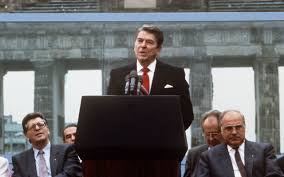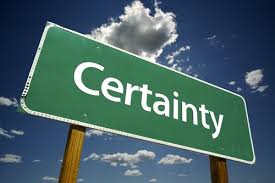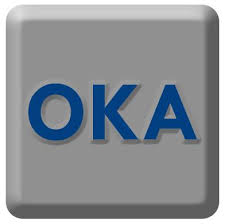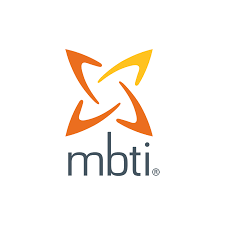There are now over two dozen people vying for the 2020 Democratic Presidential nomination, and the questions to these candidates are coming fast and pointedly–“Senator, what do you think about this?” “Governor, what would you do about that?” The price for not having and answer and not knowing what he or she would do in any given situation is costly. People, it seems, want their leaders certain.
In Don Moore compelling article in the Harvard Business Review, “Smart Leaders are OK with Seeming Uncertain“, he makes the argument that life is complex and the future unknown, and because of this, it is wise for our leaders to admit it when they don’t know the answer or the best way forward. On one hand that sounds smart and true, but held up against reality and history, the sentiment comes up short. For the most part, people want their leaders certain.

In 1933, when a fearful nation tuned in to hear its new president, Franklin Roosevelt, we wanted–we needed–certainty and confidence. Can you imagine FDR saying, “The only thing we have to fear is fear itself, and well, the total collapse of the free-market system, our government and our way of life.” All these things were hanging in the balance. Just before taking office, a friend of Roosevelt told him that if he was successful he would be remembered as the United States’ greatest President to which FDR replied that if he failed, he would be remembered as its last President. The stakes were high, and Roosevelt knew it. We needed confidence and certainty, not a nuanced yet honest projection of our possible futures.

When Reagan stood at the Brandenburg Gate with the world watching, he said, “Mr Gorbachev, tear down this wall.” What impact would he have had were he to have asked, “Hey Mr Gorbachev, what do you say you tear down this wall—or maybe just some of it. If you don’t want to tear it down completely, how about lowering it a bit?” What made Reagan at Brandenburg so iconic was his bold clarity and certainty. The future is unknown and complex, but we like our leaders confident and sure.
Psychological Type supports this idea. About 55% of people (cross-culturally) prefer Judging, which manifests as a public face of structure, closure, and order. Judgers, by extraverting judgment and directives, tend to sound decided and sure (even when they are not). And while Judgers are 55% of the population, they make up over 2/3 of management and leadership positions, and the higher up the leadership ladder you go, the more J the group becomes. Over 90% of the world’s C-suite leaders have a preference for Judging.
The preponderance of Judging preferences higher up on the org chart reflects the collective’s desire for certainty from our leaders. While it is true that we, as people, are often unsure when we look to the future or face a complex problem, we are so often buoyed by the voice and face that will cut through that fog with clarity and confidence. Smart leaders may be OK with ambiguity and not knowing, but people who want to be in charge need to how to project confidence and clarity to an uncertain crowd looking to be led.
People want their leaders certain.

 OKA has many popular and industry-leading Type-based leadership development training options–both in-person and online.
OKA has many popular and industry-leading Type-based leadership development training options–both in-person and online.
 The Pearman Personality Integrator (Pearman) is a new and exciting breath of fresh air in the worlds of both Type and leadership development. Click here to learn more about the Pearman.
The Pearman Personality Integrator (Pearman) is a new and exciting breath of fresh air in the worlds of both Type and leadership development. Click here to learn more about the Pearman.


Leave a Comment